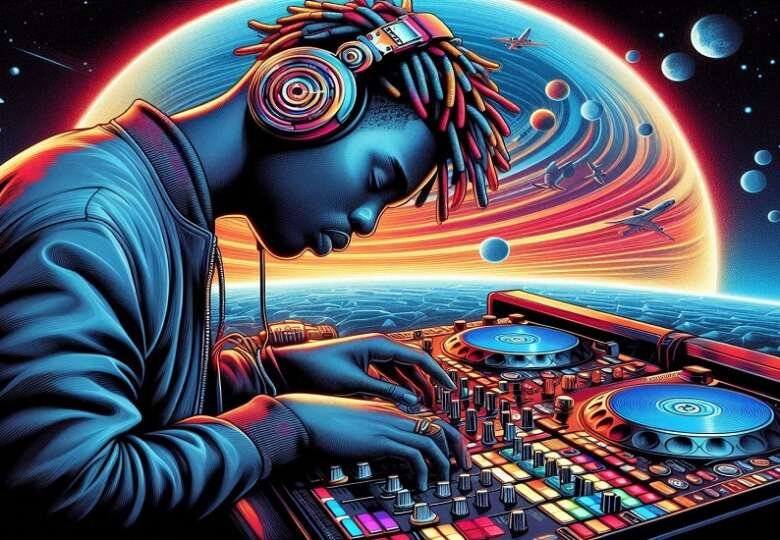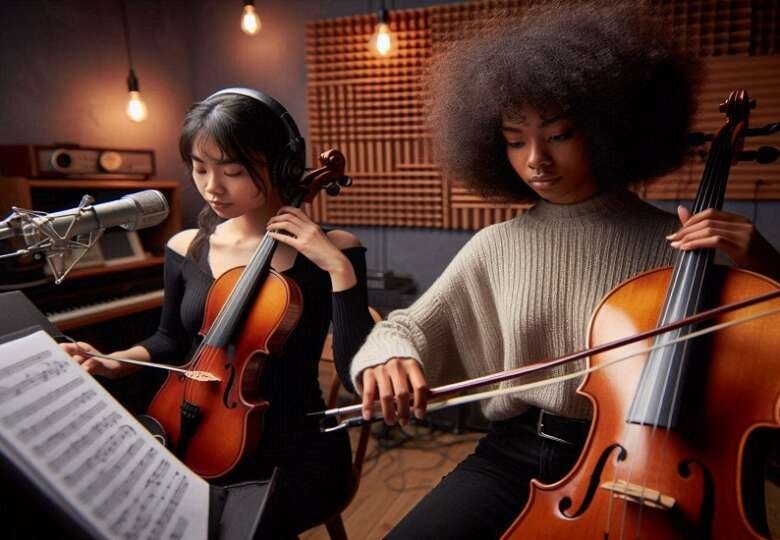To become a music producer
Requires creativity, technical skills, & industry knowledge. there are steps you can take to pursue this career.
- Develop Your Musical Skills
Start by building a strong foundation in music theory & composition. Understand scales, chords, & harmonies. Learn to play an instrument or improve your existing skills. - Master Music Production Software
Familiarize yourself with digital audio workstations (DAWs) like Ableton Live, Logic Pro, or FL Studio. These tools are essential for creating, editing, & arranging music.
Listen Actively & - Broaden Your Musical Horizons
Study different genres, artists, & production techniques. Analyze tracks critically to understand how they’re produced. Be open to diverse musical styles. - Study the Work of Great Producers
Research renowned producers like Quincy Jones, Dr. Dre, or Rick Rubin. Learn from their approaches, workflows, & signature sounds. - Learn the Technical Side of Production
Dive into recording, mixing, & mastering techniques. Understand mic placement, EQ, compression, & effects. Experiment with sound design. - Consider a Home Studio
Set up a basic home studio with quality headphones, monitors, & a microphone. Start producing your own music & honing your skill set. - Collaborate, Learn from Others, & Network
Connect with other musicians, producers, & industry professionals. Attend workshops, conferences, & music events. Collaborate on projects to gain experience. - Produce Your Own Music
Create original tracks, remixes, or beats. Share your work online through platforms like SoundCloud or YouTube. Build a portfolio to showcase your talent. persistence & passion are key. Keep you must always keep learning, stay inspired, & immerse yourself in the world of music production. I will provide a link to a comprehensive guide for those who wish to know more.
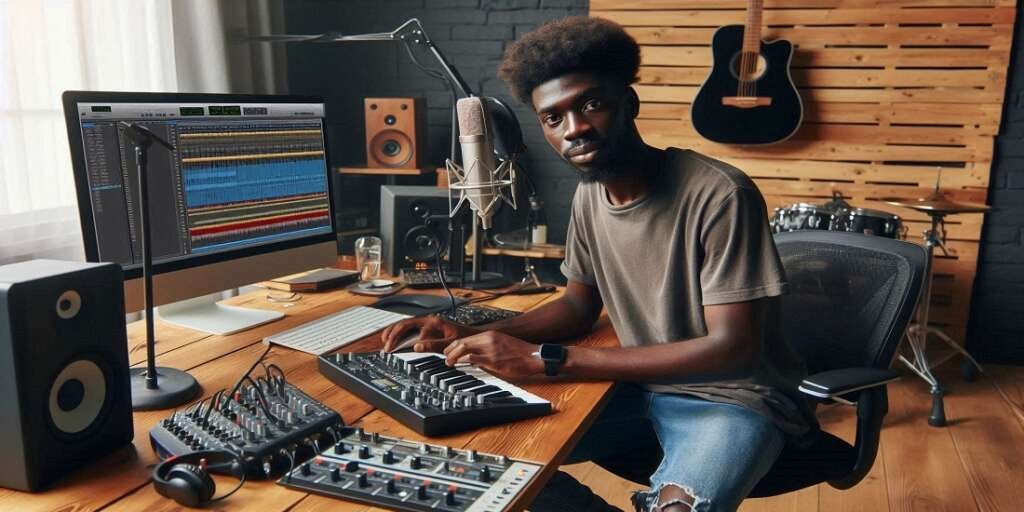
There are various recording styles & methods, Lets take a look at Digital Recording
The world of digital recording using samplers, drum machines, & synthesizers. These versatile tools have shaped modern music production, allowing artists to create unique sounds & captivating rhythms. Whether you’re a seasoned producer or just starting out, understanding how to harness their power can elevate your recordings.
- Samplers. Unlocking Creativity Samplers are digital devices or software programs that capture, store, & play back audio samples. Here’s what you need to know. What Is a Sampler? A sampler allows you to load audio recordings (one-shots or loops) & manipulate them. Think of it as a sonic palette where you can blend & transform sounds. From classic drum hits to vocal snippets, samplers offer endless possibilities. Hardware vs. Software Samplers.
Hardware Samplers. These standalone devices replicate drum & percussion sounds. They’re great for live performance & studio use. Examples include Elektron’s Digitakt & Akai’s MPC series.
Software Samplers. Integrated into digital audio workstations (DAWs), these plugins let you program & manipulate samples directly on your computer. Logic Pro’s Drum Machine Designer is a powerful example.
2. Drum Machines. Building Rhythmic Foundations Drum machines are essential for creating beats & grooves. Here’s how to use them effectively. What Is a Drum Machine? A drum machine synthesizes drum & percussion sounds. It’s like having a virtual drummer at your fingertips. Whether you’re into electronic, hip hop, or rock, drum machines provide rhythmic inspiration.
3. Setting Up Your Drum Machine. Connect the audio outputs from your drum machine to your audio interface using cables.
Adjust the gain or volume on your audio interface track.
Connect the USB output from your interface to your computer.
Creating Drum Patterns. Experiment with different sounds, kick drums, snares, hi-hats, & more.
Program patterns using step sequencing or real time recording. Layer & arrange your beats to build full rhythms.
4. Synthesizers. Shaping Soundscapes While not explicitly mentioned, synthesizers play a crucial role in digital recording.
A brief overview. What Is a Synthesizer? Synths generate sound electronically. They’re used for melodies, chords, & atmospheric textures.
Types of Synthesizers.
Analog Synths. Warm, vintage sounds. Examples. Moog, Roland.
Digital Synths. Versatile & precise. Examples. Yamaha DX7, Native Instruments Massive.
Virtual Synths (VSTs) Software plugins that emulate hardware synths.
Your Sonic Toolkit
In your digital recording journey, embrace samplers, drum machines, & synths. Combine their powers, experiment, & let your creativity flow. Whether you’re crafting a dance track, a rock Track, a cinematic score, or an ambient piece, these tools are your sonic companions. Music production is about exploration. Dive into the depths of sound, Use your imagination to guide you.
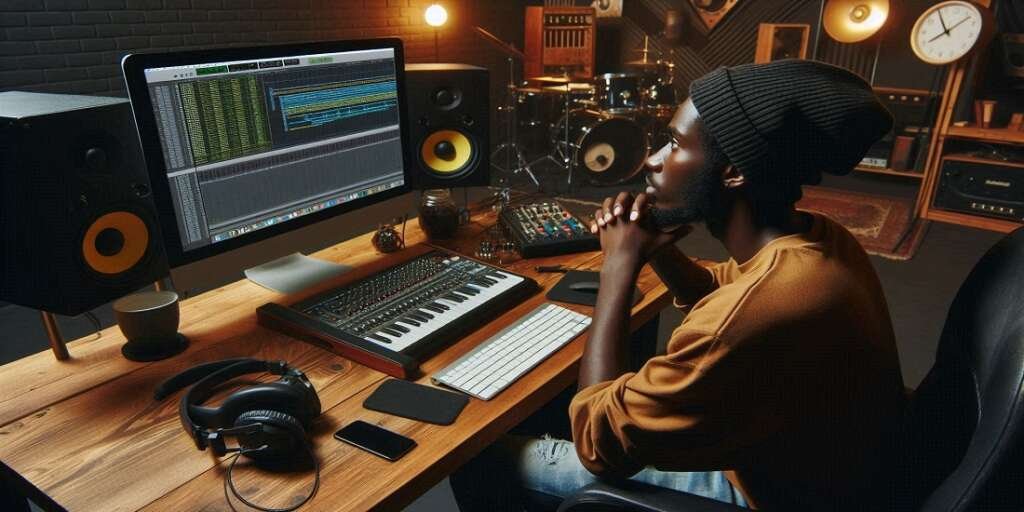
For Live Recordings
Focus on Capturing Great Sounds: Legendary producers emphasize the importance of getting excellent raw recordings. Don’t rely on fixing everything in post-production. Instead, invest time in mic placement, instrument tuning, & capturing the essence of the performance during recording.
Learn Your Gear Inside Out: Rather than chasing after the latest equipment, master what you already have. Read manuals, experiment, & understand the nuances of your microphones, preamps, & other gear. Quality recordings come from knowing your tools well.
Patience Is Key: Rushing through recording sessions rarely leads to outstanding results. Take your time to set up, experiment, & find the sweet spots for each instrument. Patience pays off in the final mix.
Separate Mixing & Mastering: Top producers recommend focusing solely on recording during the tracking phase. Leave mastering for later it’s a specialized skill. Concentrate on capturing great performances & worry about mastering afterward.
Acoustic Treatment Matters: Studio acoustics significantly impact the quality of your recordings. Properly treat your room to minimize reflections & unwanted noise. Invest in good studio monitors to hear accurately.
Think Ahead: Fixing issues in post-production can be challenging. Aim for great sounds during recording whether it’s mic choice, instrument selection, or room setup. Prevention is better than correction.
Avoid Overprocessing: When mixing, resist the temptation to add excessive effects or plugins. Keep the mix clean & transparent. Less is often more.
Remember, these insights come from professionals who have shaped the music industry. Incorporate their advice into your recording process, & you’ll be on your way to creating exceptional sounding tracks.
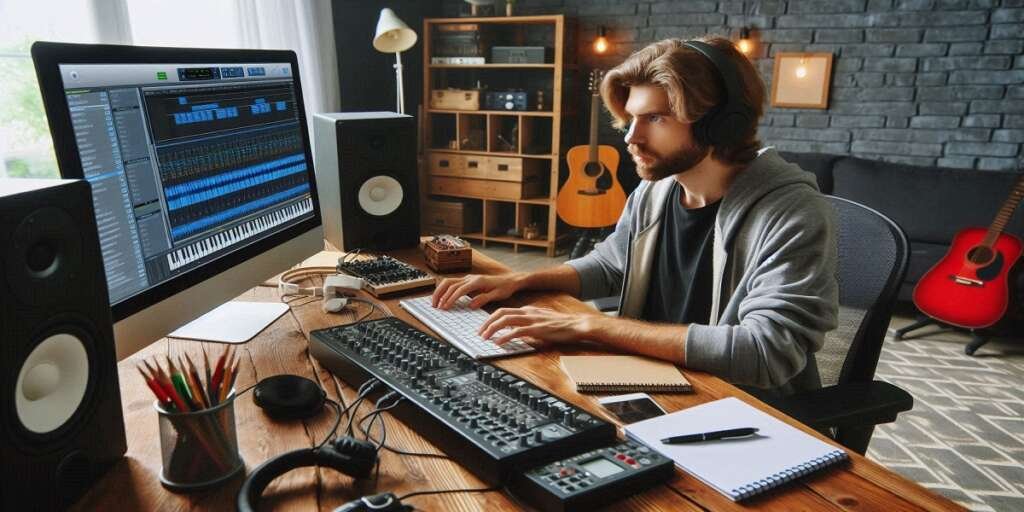
Mastering Is Separate:
Don’t worry about mastering during the recording process. It’s a separate art form, so focus on capturing great sounds first.
- Room Acoustics Matter: Ensure your studio space is properly soundproofed & acoustically treated. Invest in quality monitors to accurately hear what you’re recording.
- Learn Your Gear: You don’t need an extensive microphone collection. Instead, focus on understanding & maximizing the potential of the gear you have. Read manuals & take notes to master your equipment
- Patience Pays Off: Take your time when setting up & getting sounds. Rushing can lead to subpar recordings. Experiment & find the sweet spots for each instrument.
- Learn by Doing: Have sessions where the sole goal is to learn. Experiment with different mics placements, recording techniques, & signal chains. Learning through practice is invaluable.
- Avoid Overprocessing: When mixing, resist the urge to apply excessive effects or processing. Keep it simple & let the mix breathe naturally.
- Think Ahead: Don’t assume issues will be fixed in the mix. Aim for great sounds during recording, as fixing problems later can be challenging
Remember, these insights come from experienced professionals who have honed their craft over years of work.
Useful Links for help & Information:
- A Complete Guide to Becoming a Music Producer (careeraddict.com)
- How to Become a Music Producer: A Step-by-Step Guide to Finding Your Way in the Music Industry (miami.edu)
- 3 Ways to Become a Music Producer – wikiHow
- How to Become a Music Producer | Career Karma
- Music Production: Guide to Producing & Releasing Tracks (avid.com)

